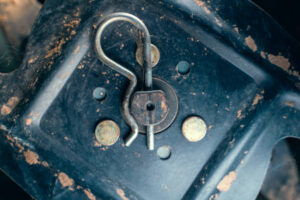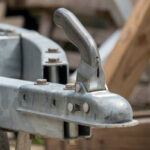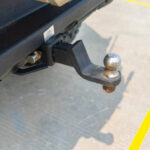Locking vs Non Locking Hitch Pins
The hitch pin is one of those pieces that are normally ignored when it comes to towing safely and securely. This Locking vs Non-Locking Hitch Pins can seem too insignificant to even pay attention to, but you can make a significant choice between one kind of hardware or another when it comes to the experience of being a driver of a towing unit.
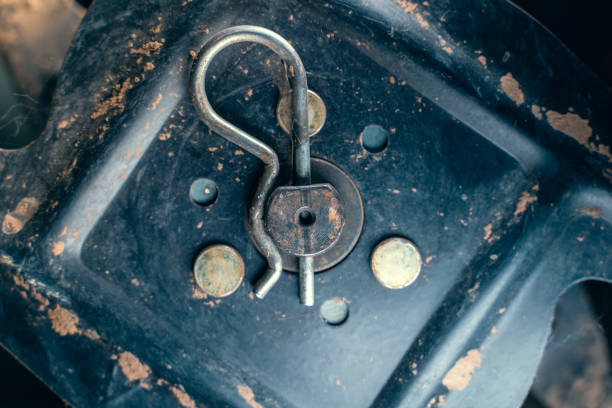
You might be towing a boat, camper, and utility trailer and it is important that you know how these two types of hitch pins operate and the difference between these makes is paramount to any driver. This article will unpack the differences, uses, and pros and cons of locking vs Non-Locking Hitch Pins. You will also be given professional information that can help you decide on which one to choose in terms of fitment based on your specific towing needs.
Why the Hitch Pin Is So Important Compared to Towing Safety
The hitch accessory or the ball mount is connected at the hitch receiver place with a pin in the hitch. I mean, it is the one that is keeping your trailer hooked up to your car. This is a minor but not trivial section of the towing safety. The consequences are diverse and can be a lost trailer up to a full road hazard on the highway, depending on the fixation of the hitch pin. This is why it is not a surprise that the knowledge of Locking vs Non Locking Hitch Pins is not merely the technical clapper; it is the precaution that can help you save your cargo, your car, and all the people on the road.
What is a hitchpin other than a locking kind?
Security devices all hitches have some sort of security device, the simplest being nonlocking hitch pins. These pins are usually steel or stainless steel, fit into holes in the receiver and the ball mount, and are easily held together by a simple clip or a cotter pin. They are especially good at being simple and cheap. They are to open easily, have no keys or combination and one can obtain them in many sizes to cater to many towing conditions.
Otherwise, when thinking about Locking vs Non-Locking Hitch Pins, it is important to mention that, in addition to locking pins, we could take non-locking ones that are indeed sort of usable, yet guarantee almost zero resistance to theft as well. This alone would have sufficed to draw that clip and shake the pin out, which would check your trailer.
What Is Hitch Pin Locking?
Locking hitch pins are more modern in that they possess some form of locking mechanism incorporated on the pin: either a key or combination. They are not only manufactured to ensure that your trailer does not get off but also are designed in such a way that no one can take your trailer away without your consent.
The locking feature implies that a burglar will struggle significantly more to disconnect your trailer with your vehicle or detach a hitch-mounted attachment, like a bike rack or a cargo carrier. Taking into account one advantage as it is an added security, the locking pin can provide you with not quantifiable peace of mind when leaving your vehicle in a neighborhood that is not necessarily street at all or the reverse when using street car parking.
Construction and Material Quality
The dimension where Locking vs Non Locking Hitch Pins diverge is build quality. Lock pins are more commonly of hard-wearing materials and may be accompanied by weather-resistant coating or dust covers to seal the lock cylinder. These extra functions are not normally used on non-locking pins, which, though still quite strong, do not yet include all those features. Locking pins could also be a choice from the ever-comprehensive assortment of locks and accessories for those who tow and park often or who have their hitch gear installed permanently, as the quality of the metal could be the reason to choose.
Ease of Use: Which one can be deemed as more convenient?
Non-lockable Hitch pins win a few points in the simplicity department. They can be inserted or removed in a few minutes without keys and tools. The hitch pins will also demand a little more time to release and attach, but they are not overly complex. You will need to remember the key or memorize a code, and you may even need some sticky lock since it could be exposed to rain or snow, thus needing protection. With the question of ease of use of Locking vs Non Locking Hitch Pins, you can select ease of use based on your assumption about the counts of lifts and subsequent removals of your trailer or accessory.
Security: The Variation in the Purity
Security: We do not want to dance around the bush, but this is what people come to mind when they think of locking hitch pins. The situation is tense when you park your trailer at a job site or a rest stop or even in front of your back door; a non-locking spring pin leaves you susceptible. A locking pin, nevertheless, is deterring. There is no such thing as a foolproof lock, but most unplanned and opportunistic burglars will never wish to crack an excellent locking system. Any consideration of security in favor may just be enough to tip the scales towards locking pins in Locking vs Non Locking Hitch Pins: The Decision.
Price Point Comparison
The other side of it is price. Non-locking pins are typically less costly, priced below 15 dollars. Locking pins range in price depending on the feature and brand, between 25 and 60 dollars or higher. In occasional towing or towing location work, a non-locking pin may be all that needs to be used. Naturally, this is a well-spent investment only when transporting costly equipment or trailers over extended distances, but it may be worthwhile in the long-term prospect. The price differential is just one of the less complex aspects of the Locking vs Non Locking Hitch Pins debate and something that you should level out according to your demands.
Best Usages of Locking Hitch Pins
Locking hitch pins are especially relevant to those who tow high-value trailers or regularly store their trailers somewhere where the general populace may access them or utilize accessories mounted on a hitch, e.g., a bike rack. An additional upgrade to a locking pin is a brilliant idea when your trailer has been attacked already. Many RV owners, off-roaders, and tradespeople find the locking hitch pin helpful: they can leave their equipment safely stored as they travel or stop overnight. The argument of Locking vs Non Locking Hitch Pins does not even qualify as an argument in such a situation, but it must be.
Best Cases of Non-Locking Hitch Pins
Non-locking hitch pins would suit you best if you are towing over shorter distances or not frequently, storing in your backyard, or are price-conscious. The only reason it seems non-locking pins are generally sufficient is if he takes local runs in utility trailers as part of his job as a landscaper or is doing his own thing. A non-locking solution can do the same if you are in a low-risk location and do not mind flipping a pin when it is not in use.
The Afterlife and Lifespan Concerns
When we compare Locking vs Non Locking Hitch Pins, the long-term is a fact. Protective enhanced locking pins tend to survive a longer life since they are weatherproofed. However, they also require some regular upkeep, like skyclapping the locking mechanism. Stamped, rigged, non-locking pins are also easier to fit, although they stamp in case of exposure to rust, and are cheaper to renew. A locking pin, preferably one with high corrosion resistance, might serve you better in the long run, provided that you prefer to forget and not adjust the pin every time.
But which of these is to be selected? Final Thoughts
The choice of whether to use Locking vs Non Locking Hitch Pins is just dependent on what you are towing with your towing setup. Thieves can be a threat when it comes to protecting against theft, and thus you are better off catching thieves by using a locking hitch pin when you have valuable loads or trailers with you. Just as an incident,
when simplicity, speediness, and great expense are your main thoughts, and the danger of working in the same locale is not so great as in a background prison, a non-locking hitch pin may be able to amuse you to your heart’s content. Regardless of what they are, you must be sure that the product you purchase is appropriate to your hitch type and the specifications of your vehicle.
In conclusion, the intelligent thing to do when towing is to make the correct decision.
Lastly, being aware of the significant distinctions of Locking vs Non Locking Hitch Pins can save you some money, time, and stress. It is not hardware but a peace of mind. With an appropriate hitch pin, not only will your trailer and equipment be safe and sound, but there will also be no issues when it comes to towing. You may simply wish to perform a few DIY tasks or have a long cross-country haul; a prudent and experience-driven decision will help you to be on the right track to success. It’s never too late to be wise—and to be smart.
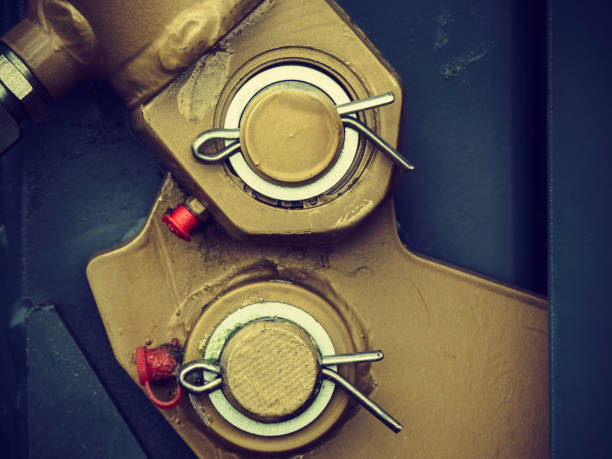
FAQs
Do all trailer hitches take locking hitch pins?
The majority of locking hitch pins are available in different lengths and a very wide spectrum of diameters that are compatible with Class I to Class V hitches. Ensure the receiver size is correct at all times and select a pin to match the style of your hitch.
Can a locking hitch pin freeze or become obstructed due to low temperatures?
Yes, just like any other lock, it is susceptible to frost and water. This is preventable by purchasing a weatherproof capped lock and lubricating it occasionally.
